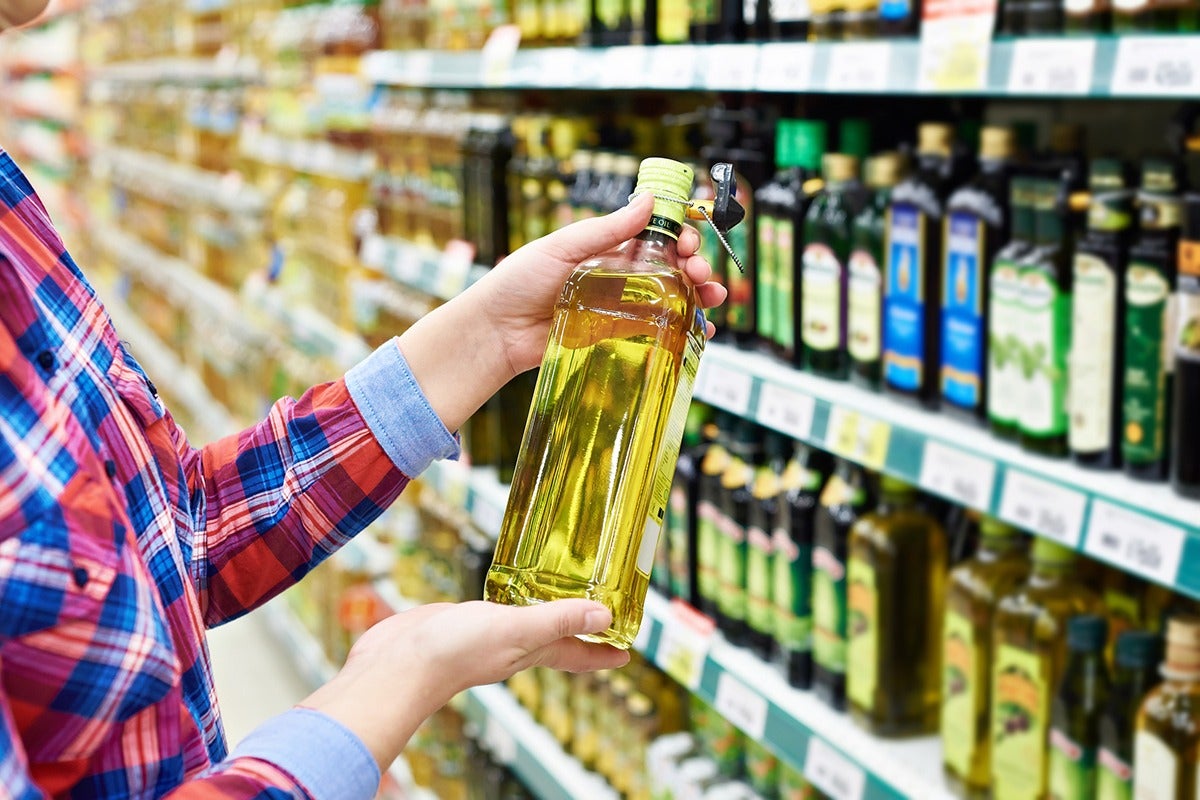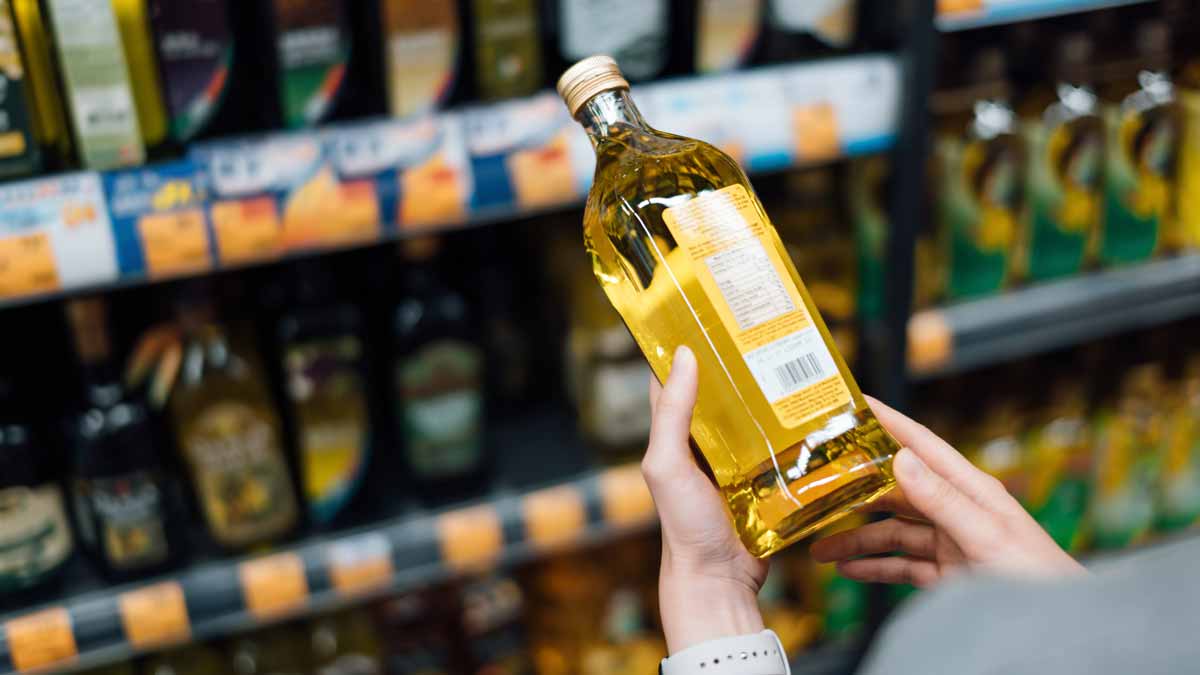ndustrial seed and vegetable oils are harmful to your health, and these products are long entrenched in the market. However, there are substitutes you can use to replace these harmful oils in your cooking. But how exactly do industrial seed and vegetable oils undermine your health?
According to a study published in the journal Open Heart, the linoleic acid in vegetable oil is the culprit as it easily oxidizes and turns into oxidized linoleic acid metabolites (OXLAMS). These OXLAMS induce atherosclerosis and heart disease, so it follows that reducing vegetable oil consumption would also reduce the amount of OXLAMS being formed.
But there's no need to fret, as registered nutritionist Kerry Torrens shares several alternatives to seed and vegetable oils that offer extra health benefits for you and your family.
Avocado oil
Pressed from the fruit of the avocado tree, this oil is often likened to olive oil. It is rich in monounsaturated fatty acids (MUFAs), especially oleic acid, which increases the oil’s stability at high temperatures. A study published 2019 in the journal Molecules stated that almost 70 percent of avocado oil consists of heart-healthy oleic acid, a monounsaturated omega-9 fatty acid.
The high smoke point of both refined and unrefined avocado oil makes it ideal for cooking. Its subtle flavor also allows other ingredients in your recipe to shine through.
Olive oil
Olive oil is made from the juice of the olive fruit and is known for its many health benefits from protecting you against heart disease to reducing your risk of developing Type-2 diabetes. Oleic oil, the predominant MUFA found in olive oil, is thought to be 50 times less likely to oxidize than linoleic acid – the predominant polyunsaturated fatty acid (PUFA) found in vegetable oils, like corn oil and sunflower oil.
Virgin olive oil is a good cooking oil for temperatures between 356 F and 374 F. Aside from imparting a unique flavor to your dishes, virgin olive oil contains antioxidants such as vitamin E and more.
However, extra virgin olive oil (EVOO) is reported to have the lowest oxidation rate of any cooking oil. EVOO is made from pure, cold-pressed olives and is an ideal choice when cooking at home – but be wary of overheating it as it has a low smoking point.
Butter
Butter has been part of the human diet since the agricultural ages after the domestication of mammals. It is obtained from churning milk or cream, and was first prepared from sheep's milk. Nowadays, organic butter is made using milk from grass-fed cows.
Butter contains a variety of fat-soluble nutrients such as vitamins K2, A, D and E. It serves as the perfect carrier for these vitamins as it provides the fat necessary for their absorption. Butter also contains butyric acid that can inhibit the growth of tumors in the breast, according to a study published in the Journal of Dairy Science.
Ghee
Commonly used in Indian cooking, ghee is made by simmering butter until the moisture evaporates and removing the milk solids until a clear golden oil is left. The low moisture and high saturated fat content gives ghee a high smoke point and long shelf life. It is also devoid of lactose and casein, making ghee a suitable option for those with lactose intolerance or milk allergy.
A study by researchers from Universiti Putra Malaysia examined ghee and vegetable oils when exposed at a temperature of 356 F. It found that ghee creates fewer damaging acrylamides compared to vegetable oils. Acrylamides are chemicals that form when starchy foods such as potatoes and bread are cooked at temperatures above 248 F.
Lard
Lard is made by rendering – boiling, steaming or using dry heat – pork fat from the rest of the animal tissue. It does not oxidize at high temperatures and has a remarkably high smoke point of 375 F.
Contrary to claims that pork lard is unhealthy due, it contains the second-highest amount of MUFAs at 48 percent – only olive oil has more at 77 percent. This helps lower blood cholesterol levels and maintain healthy cells. Lard is also a great source of choline, a nutrient your brain and nervous system need to regulate memory, mood, muscle control and other functions.
Lard contains anywhere from 102 to 399 milligrams per cup, depending on how the pig was raised. Lard rendered from organic, pasture-raised pigs will likely contain significantly more choline than those raised in the conventional manner.
Tallow
Whereas lard is made from pork, tallow is made from suet (beef fat) that has been clarified and rendered. It boasts of a high smoke point of 400 F, making it an excellent choice for frying, sauteing and searing meats. Since it's from beef, tallow adds more flavor to your dishes. (Related: The decades-long saturated fat SCAM to push toxic vegetable oils… here’s why you should be eating tallow instead of canola.)
Both tallow and suet are rich in fat-soluble nutrients such as vitamins A, B1, D, E and K. They are also healthier and stable alternatives to industrially-processed seed and vegetable oils that cause inflammation.
Ditch harmful VEGETABLE OILS for these healthy substitutes – NaturalNews.com
According to a study published in the journal Open Heart, the linoleic acid in vegetable oil is the culprit as it easily oxidizes and turns into oxidized linoleic acid metabolites (OXLAMS). These OXLAMS induce atherosclerosis and heart disease, so it follows that reducing vegetable oil consumption would also reduce the amount of OXLAMS being formed.
But there's no need to fret, as registered nutritionist Kerry Torrens shares several alternatives to seed and vegetable oils that offer extra health benefits for you and your family.
Avocado oil
Pressed from the fruit of the avocado tree, this oil is often likened to olive oil. It is rich in monounsaturated fatty acids (MUFAs), especially oleic acid, which increases the oil’s stability at high temperatures. A study published 2019 in the journal Molecules stated that almost 70 percent of avocado oil consists of heart-healthy oleic acid, a monounsaturated omega-9 fatty acid.
The high smoke point of both refined and unrefined avocado oil makes it ideal for cooking. Its subtle flavor also allows other ingredients in your recipe to shine through.
Olive oil
Olive oil is made from the juice of the olive fruit and is known for its many health benefits from protecting you against heart disease to reducing your risk of developing Type-2 diabetes. Oleic oil, the predominant MUFA found in olive oil, is thought to be 50 times less likely to oxidize than linoleic acid – the predominant polyunsaturated fatty acid (PUFA) found in vegetable oils, like corn oil and sunflower oil.
Virgin olive oil is a good cooking oil for temperatures between 356 F and 374 F. Aside from imparting a unique flavor to your dishes, virgin olive oil contains antioxidants such as vitamin E and more.
However, extra virgin olive oil (EVOO) is reported to have the lowest oxidation rate of any cooking oil. EVOO is made from pure, cold-pressed olives and is an ideal choice when cooking at home – but be wary of overheating it as it has a low smoking point.
Butter
Butter has been part of the human diet since the agricultural ages after the domestication of mammals. It is obtained from churning milk or cream, and was first prepared from sheep's milk. Nowadays, organic butter is made using milk from grass-fed cows.
Butter contains a variety of fat-soluble nutrients such as vitamins K2, A, D and E. It serves as the perfect carrier for these vitamins as it provides the fat necessary for their absorption. Butter also contains butyric acid that can inhibit the growth of tumors in the breast, according to a study published in the Journal of Dairy Science.
Ghee
Commonly used in Indian cooking, ghee is made by simmering butter until the moisture evaporates and removing the milk solids until a clear golden oil is left. The low moisture and high saturated fat content gives ghee a high smoke point and long shelf life. It is also devoid of lactose and casein, making ghee a suitable option for those with lactose intolerance or milk allergy.
A study by researchers from Universiti Putra Malaysia examined ghee and vegetable oils when exposed at a temperature of 356 F. It found that ghee creates fewer damaging acrylamides compared to vegetable oils. Acrylamides are chemicals that form when starchy foods such as potatoes and bread are cooked at temperatures above 248 F.
Lard
Lard is made by rendering – boiling, steaming or using dry heat – pork fat from the rest of the animal tissue. It does not oxidize at high temperatures and has a remarkably high smoke point of 375 F.
Contrary to claims that pork lard is unhealthy due, it contains the second-highest amount of MUFAs at 48 percent – only olive oil has more at 77 percent. This helps lower blood cholesterol levels and maintain healthy cells. Lard is also a great source of choline, a nutrient your brain and nervous system need to regulate memory, mood, muscle control and other functions.
Lard contains anywhere from 102 to 399 milligrams per cup, depending on how the pig was raised. Lard rendered from organic, pasture-raised pigs will likely contain significantly more choline than those raised in the conventional manner.
Tallow
Whereas lard is made from pork, tallow is made from suet (beef fat) that has been clarified and rendered. It boasts of a high smoke point of 400 F, making it an excellent choice for frying, sauteing and searing meats. Since it's from beef, tallow adds more flavor to your dishes. (Related: The decades-long saturated fat SCAM to push toxic vegetable oils… here’s why you should be eating tallow instead of canola.)
Both tallow and suet are rich in fat-soluble nutrients such as vitamins A, B1, D, E and K. They are also healthier and stable alternatives to industrially-processed seed and vegetable oils that cause inflammation.
Ditch harmful VEGETABLE OILS for these healthy substitutes – NaturalNews.com










